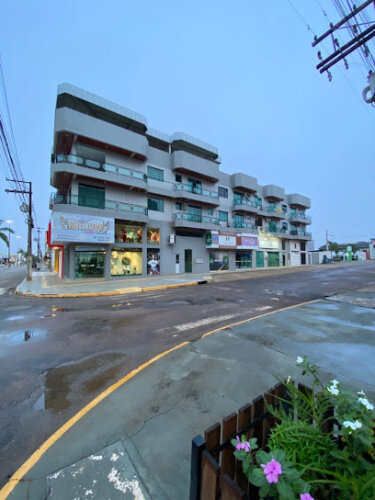Best Art & Cultural Property Law Lawyers in Brazil
Share your needs with us, get contacted by law firms.
Free. Takes 2 min.
Or refine your search by selecting a city:
List of the best lawyers in Brazil
About Art & Cultural Property Law in Brazil
Art & Cultural Property Law in Brazil is a specialized field that deals with the legal aspects surrounding artworks, cultural artifacts, and heritage sites. Due to Brazil’s rich cultural history and diverse heritage, this area of law encompasses national laws protecting cultural properties, the regulation of art transactions, intellectual property rights, and international treaties that Brazil is a part of. The law aims to protect and preserve the cultural identity of the nation while facilitating lawful transactions in the art market.
Why You May Need a Lawyer
There are several scenarios where you might require legal assistance in the realm of Art & Cultural Property Law in Brazil. These include:
- Acquiring or selling art pieces while complying with national and international regulations.
- Resolving disputes related to the authenticity of artworks.
- Protecting intellectual property rights and combating art forgery.
- Dealing with the import or export of cultural artifacts.
- Consulting on the management and conservation of cultural heritage properties.
- Navigating restitution claims for art or cultural property.
- Assistance with compliance in cases of archaeological finds or site developments.
Local Laws Overview
Key aspects of Brazilian laws related to Art & Cultural Property include:
- Constitutional Provisions: The 1988 Brazilian Constitution includes articles that recognize and protect cultural heritage.
- Law 9613/98 (Money Laundering Law): Addresses the relationship between art transactions and money laundering activities.
- Decree-Law 25 of 1937: Establishes the protection of historic and artistic heritage, obligating owners of cultural properties to maintain them.
- National Institute of Historic and Artistic Heritage (IPHAN): The agency responsible for preserving cultural properties and heritage.
- International Treaties: Brazil is a signatory to international agreements like UNESCO's 1970 Convention, which combats the illicit trafficking of cultural property.
Frequently Asked Questions
What is cultural property according to Brazilian law?
Cultural property in Brazil includes movable and immovable assets recognized for their historical, artistic, ethnographic, scientific, or social importance. This encompasses artworks, historic buildings, archaeological sites, and other items that contribute to the cultural heritage of Brazil.
How can I verify the authenticity of an artwork?
To verify the authenticity of an artwork in Brazil, it is recommended to consult a certified art appraiser or expert. Legal professionals can also guide you through the required documentation and provenance research.
What should I consider when purchasing art in Brazil?
When purchasing art, consider checking the authenticity, ensuring there is a clear provenance, understanding the applicable taxes, and complying with import/export laws. A lawyer skilled in Art & Cultural Property Law can provide valuable assistance in this process.
How do I register a cultural property with IPHAN?
Registration with IPHAN involves submitting a detailed application that includes historical and descriptive data about the property. The process is aimed at officially recognizing the property as part of national cultural heritage.
Are there any tax incentives for the preservation of cultural properties?
Yes, the Brazilian government offers tax incentives for the restoration and preservation of recognized cultural properties. Owners may receive reductions or waivers on certain taxes related to preservation efforts.
What are the penalties for illicit trafficking of cultural goods?
The illicit trafficking of cultural goods is a criminal offense in Brazil, carrying severe penalties including fines and imprisonment, enhanced by the country’s commitment to international treaties on the protection of cultural heritage.
How can I protect my artwork from being forged?
To protect artwork from forgery, artists and owners should ensure proper documentation, register copyrights, use digital verification methods, and consider legal action against suspected infringers.
What steps should be taken after discovering an archaeological object?
Upon discovering an archaeological object, it is crucial to notify IPHAN immediately as unauthorized excavation or removal is prohibited. Legal steps may be necessary to ensure compliance with cultural heritage laws.
Can I contest the designation of a property as cultural heritage?
Yes, it is possible to contest the designation if there are grounds to believe it was erroneously applied. Legal counsel is advisable to navigate the appeal process effectively.
What international agreements influence Brazilian Art & Cultural Property Law?
Brazil participates in various international agreements like the 1970 UNESCO Convention on the prohibition of illicit import, export, and transfer of cultural properties, which influence national legislation and practices.
Additional Resources
For further assistance, consider reaching out to the following resources:
- National Institute of Historic and Artistic Heritage (IPHAN): The main regulatory body for cultural heritage in Brazil.
- Ministry of Culture (MinC): Offers information and guidelines relevant to cultural policies.
- UNESCO Brazil: Engages in activities related to cultural heritage protection and offers resources on international cultural property law.
- Brazilian Bar Association (OAB): Check for specialized lawyers in the field of Art & Cultural Property Law.
- Major auction houses and galleries: Often have legal advisors who can provide assistance and advice on art transactions and laws.
Next Steps
If you require legal assistance in Art & Cultural Property Law in Brazil, consider taking the following steps:
- Conduct initial research to understand the basics of your legal needs.
- Identify and consult with a lawyer specializing in Art & Cultural Property Law through the Brazilian Bar Association or personal recommendations.
- Prepare all relevant documentation and information about your case or inquiry.
- Determine your goals and what legal protection or action you seek.
- Schedule a consultation to discuss your situation and receive tailored legal advice.
Taking these proactive steps ensures you are informed and prepared to efficiently handle any legal matters relating to art and cultural property in Brazil.
Lawzana helps you find the best lawyers and law firms in Brazil through a curated and pre-screened list of qualified legal professionals. Our platform offers rankings and detailed profiles of attorneys and law firms, allowing you to compare based on practice areas, including Art & Cultural Property Law, experience, and client feedback.
Each profile includes a description of the firm's areas of practice, client reviews, team members and partners, year of establishment, spoken languages, office locations, contact information, social media presence, and any published articles or resources. Most firms on our platform speak English and are experienced in both local and international legal matters.
Get a quote from top-rated law firms in Brazil — quickly, securely, and without unnecessary hassle.
Disclaimer:
The information provided on this page is for general informational purposes only and does not constitute legal advice. While we strive to ensure the accuracy and relevance of the content, legal information may change over time, and interpretations of the law can vary. You should always consult with a qualified legal professional for advice specific to your situation.
We disclaim all liability for actions taken or not taken based on the content of this page. If you believe any information is incorrect or outdated, please contact us, and we will review and update it where appropriate.
Browse art & cultural property law law firms by city in Brazil
Refine your search by selecting a city.
















